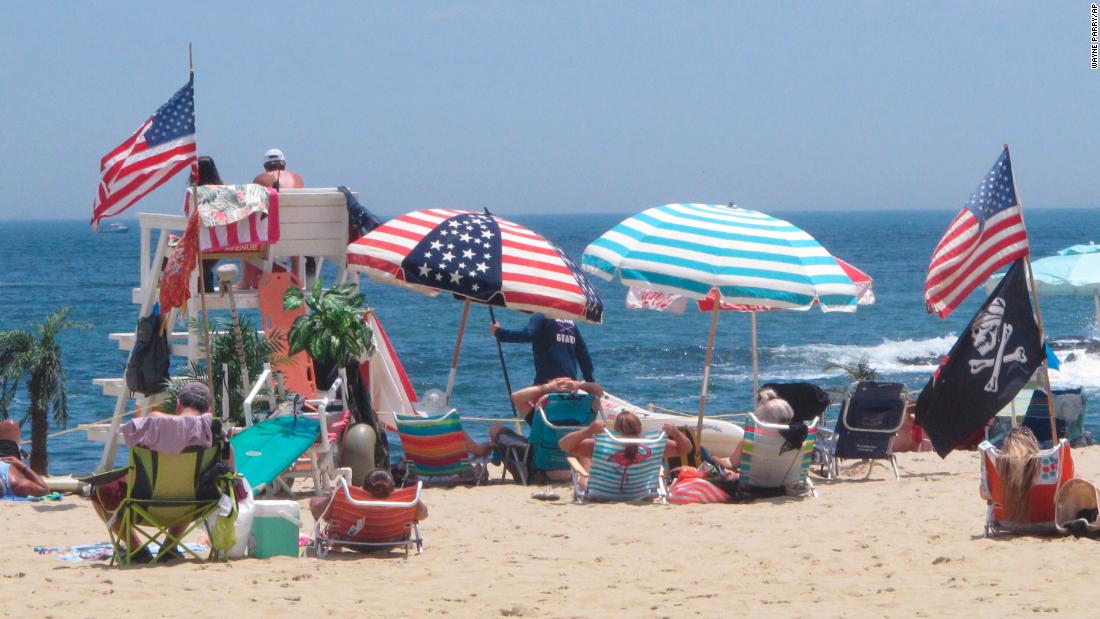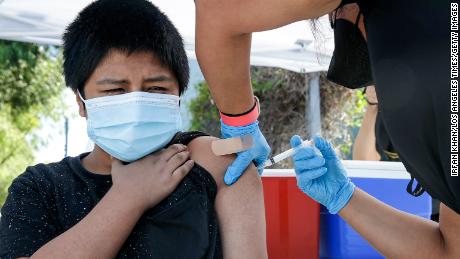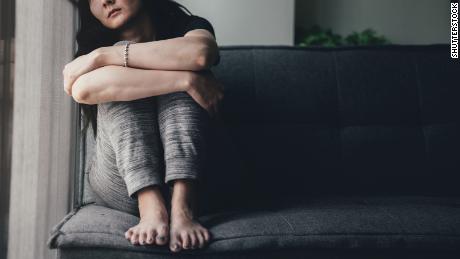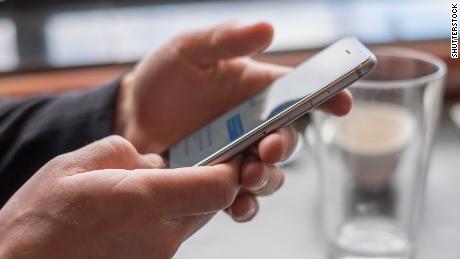What’s safe to do over the 4th of July weekend? Dr. Wen explains
What safety precautions should people keep in mind, especially with the more contagious Delta variant on the rise? What are the risks to vaccinated people versus those not yet vaccinated? What if you’re fully vaccinated, but feeling anxious and not quite ready to see so many people?
CNN: What kind of gatherings are safe from a Covid-19 perspective, now that the Delta variant is in the United States?
Dr. Leana Wen: This depends on the answer to one key question: Are you vaccinated? For unvaccinated people, the risk of Covid-19 remains high. This is particularly true with the more contagious Delta variant spreading throughout the United States. People who are unvaccinated should really only be with other unvaccinated people in outdoor settings. If there is only one unvaccinated person and everyone else is vaccinated — for example, if there is an unvaccinated child but all the adults are vaccinated — that’s low risk. The risk becomes higher if there are unvaccinated people from multiple households mixing indoors, which I would not recommend.
For people who are fully vaccinated, unless you are severely immunocompromised, you are well protected from getting Covid-19 — including against the Delta variant. What you choose to do depends on your tolerance of risk. It’s safest to get together outdoors; if you’re indoors, it’s also safe to be around others whom you trust to be fully vaccinated. What if others are not vaccinated, but you are? The risk to you around unvaccinated people is low, but it’s not zero. Some people will say that means they feel comfortable going to indoor restaurants or parties indoors, where there are others around them of unknown vaccination status. Others will still avoid these settings for now.
CNN: Does size of the gathering matter?
Wen: Yes and no. If you’re outdoors and there is plenty of space, it doesn’t matter if there are hundreds or thousands of others around. But if it’s a small, packed space — in particular if it’s indoors with poor ventilation — that definitely increases risk if you have a lot of people there.
I do think the size of the gathering matters if you’re concerned about the vaccination status of those attending. Let’s say you’re invited to a dinner party indoors, and you’d only want to go if everyone there is vaccinated. The larger the group, the harder it may be to trust that everyone is vaccinated. That said, there are concerts and shows with tens of thousands of fans that are requiring proof of vaccination. The bottom line is that it’s not so much the size of the gathering that I’d worry about, but rather vaccination status of attendees. That’s unless it’s outdoors, in which case it should be safe even for unvaccinated people to attend with other unvaccinated people.
CNN: There are a lot of vaccinated people who may not feel comfortable with any of this social activity. They are worried about getting Covid-19, however small the risk it might be. What’s your advice to them?
Wen: First, know that this is normal. People are responding in very different ways to vaccination and the end of Covid-19 restrictions. Some are so eager to resume all aspects of pre-pandemic life. Others need to take more time.
Second, think through the social activities that are the highest value to you, compared to the relative risk of that activity. Maybe it doesn’t matter to you much if you go to an indoor restaurant, but the thought of it is anxiety-provoking. Postpone that activity for now — there is nothing wrong with dining outdoors, getting takeout or preparing your own meals. On the other hand, maybe what matters most is to resume your bridge nights and see members of your extended family. If everyone attending is vaccinated, be assured that the risk of contracting Covid-19 is extremely low.
Third, once you’re engaged in the activity, focus on the here and now. Enjoy the event and think about how wonderful it is to be back doing something you love, with people whose company you’ve missed. It may feel strange initially to be in close proximity with others and to see people without masks. Focusing on the aspects of the activity that you really enjoy will help make the transition easier.
Fourth, take it slow. If you weren’t seeing anyone before, consider starting with an outdoor meal in a backyard or a park with one or two other people, for an hour or two at a time. You could then have the same people, or another small group, over for dinner at your house, for three hours. If you’re invited to a large party but aren’t sure if you’re ready, go to a medium-size gathering. Ease into larger and longer interactions and go easy on yourself if you don’t quite feel ready yet.
Finally, be OK with saying no. Just because you’re invited to an event doesn’t mean that you have to go. And just because others are OK taking a greater level of risk doesn’t mean you have to as well. Everyone has different medical histories and different interpretations of risk for themselves and their families. We also place different values on what activities we most want to bring back. It is important that we do try to move forward and regain what we most enjoyed pre-pandemic — as we also acknowledge how difficult this could be.
CNN: What if you’re at an event, but aren’t ready to do something — for example, if someone tries to hug or kiss you, but you don’t feel comfortable yet?
Wen: I think it’s entirely fine to take a step back and explain that you’re not quite ready to hug or kiss yet. Not everyone was comfortable with hugging or kissing — especially people they don’t know well — before the pandemic. Emerging from Covid-19 is an opportunity to reset expectations in social interactions.
For those who were big huggers pre-pandemic, it might be a good idea to ask others if it’s OK to give them a hug before going in for one. Just because we are comfortable ourselves with certain activities doesn’t mean that everyone else is, too. Checking is always good etiquette, as is being tolerant of other people’s differing space needs.
CNN: There may be some people who are still very anxious about social interactions. At what point might someone need professional help for mental health?
Wen: Mental health was a neglected health need even before the pandemic. Covid-19 has worsened the mental health crisis in this country.
Know that mental health conditions are very common, and that it’s critical to treat them. Ask your primary care doctor for recommendations for a mental health specialist.
CNN: Are there any other things people should keep in mind over Fourth of July weekend when it comes to health and safety?
Taking all this into consideration, it’s possible to have a terrific — and safe — Fourth of July weekend, as Americans move closer to pre-pandemic normal.
![]()








